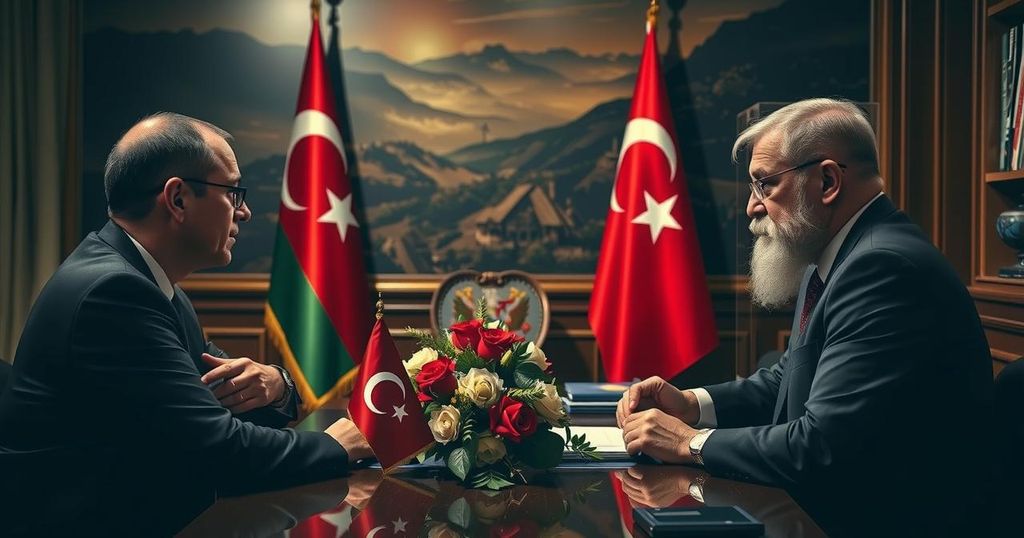Turkey’s Attempt at Reconciliation with Kurds Amid Escalating Tensions

Turkey is working towards improving relations with Kurds despite a recent attack attributed to PKK militants, which heightened tensions. Following the attack, which targeted a defense firm, political leaders are suggesting potential dialogues with jailed PKK leader Abdullah Ocalan. However, skepticism remains among the populace regarding any agreements with the PKK, influenced by broader regional conflicts and national security concerns.
Ankara is seeking to improve its relationship with Kurdish communities despite a recent deadly attack attributed to PKK militants. The Kurdistan Workers’ Party (PKK) claimed responsibility for an attack on the TAI defense firm, resulting in five deaths and injuries to 22 individuals. This incident occurred shortly after Devlet Bahceli, the head of the Nationalist Movement Party (MHP), proposed allowing Abdullah Ocalan, the imprisoned PKK leader, to speak before the Turkish Parliament in order to denounce violence and disband the PKK. Ocalan, incarcerated since 1999, recently received his first family visit in three years, further indicating a potential shift in Turkish policies towards the Kurds. The PKK asserted that the bombing was premeditated and unrelated to the discussions surrounding Ocalan. After the attack, Turkey conducted military operations against Kurdish targets in northern Syria and Iraq. Experts suggest that the Turkish government’s outreach to the Kurds may stem from regional instability and the ongoing conflicts in neighboring countries, particularly as tensions rise with Iran. Bahceli, typically aligned with President Recep Tayyip Erdogan and known for his nationalist stance, urged unity between Turks and Kurds, stating, “Turks and Kurds must love each other; this is both a religious and a political obligation for both sides.” However, public sentiment in Turkey remains skeptical regarding any reconciliation with the PKK. Analysts argue that the government’s recent diplomatic initiatives with the Kurdish factions must navigate significant opposition both domestically and within the diverse Kurdish political movement that historically resists central control from leaders like Ocalan. Amid these developments, Turkey also launches criticisms against Israel’s military actions, further complicating its positioning within the region. Observers believe that these maneuvers may aim to stabilize Turkey’s borders amidst rising tensions fueled by external conflicts, inadvertently shaping its approach to domestic ethnic relations and national unity.
The topic pertains to Turkey’s ongoing efforts to resolve historical tensions with its Kurdish population, particularly in light of recent violence and regional conflicts. The PKK, labeled a terrorist organization by Turkey and its allies, has been involved in an armed struggle since 1984. The political landscape is further complicated by the evolving dynamics in the Middle East, especially with the situation in Israel and Gaza, which has implications for Turkey’s foreign and domestic policies. The interplay between acknowledging Kurdish rights and national security remains a significant issue within Turkish politics.
In conclusion, while Turkey is attempting to initiate dialogue with Kurdish groups, particularly through the controversial figure of Abdullah Ocalan, the recent attack by the PKK complicates these efforts. The Turkish government’s outreach could be a strategic response to regional instability, but it faces skepticism from the public and challenges in unifying a historically fragmented Kurdish political landscape. The outcome of these initiatives will be pivotal in determining the future of Turkish-Kurdish relations and addressing internal and external challenges.
Original Source: www.iraqinews.com








